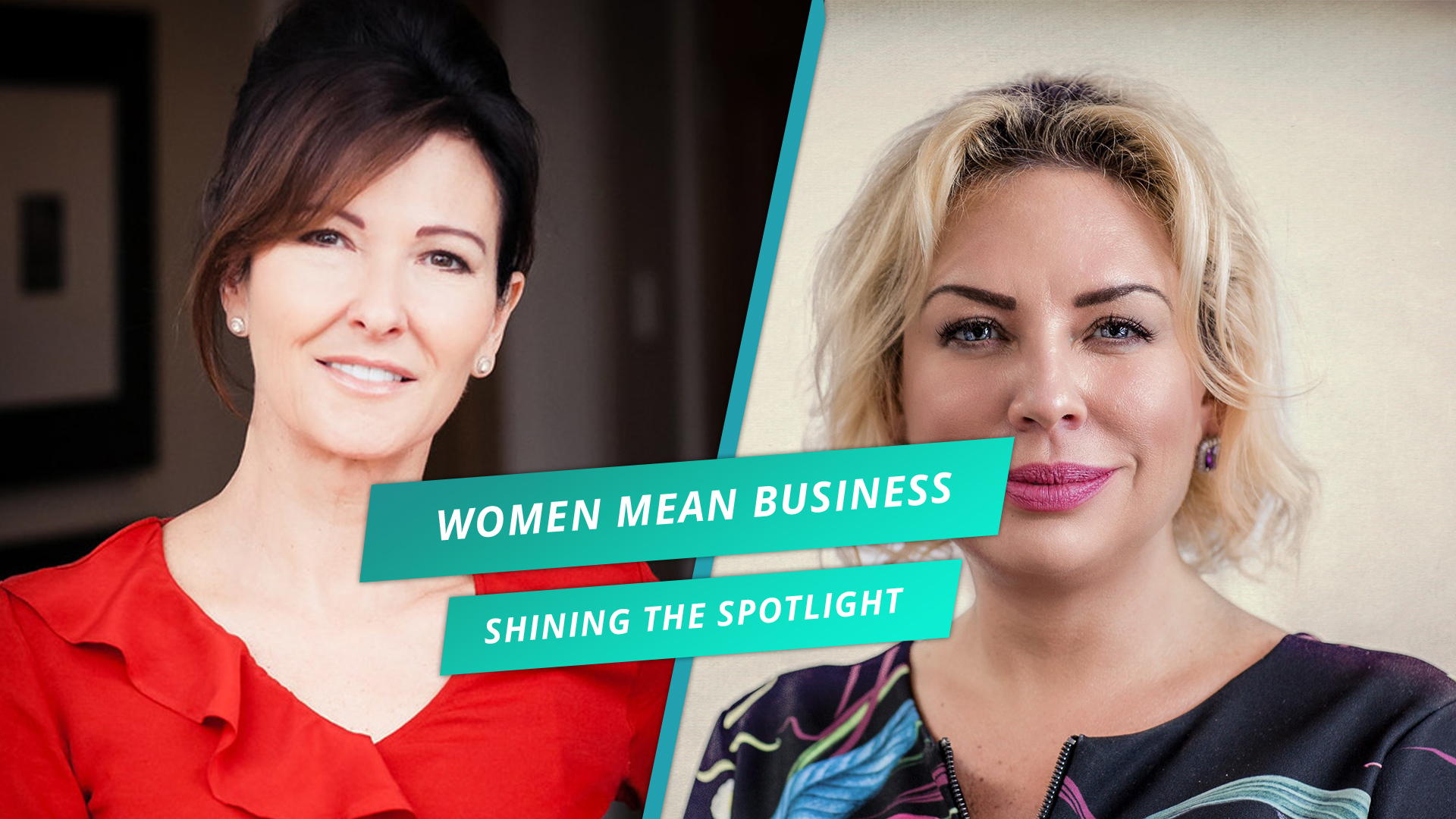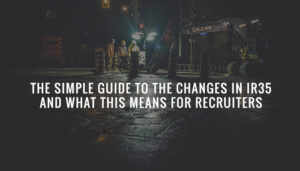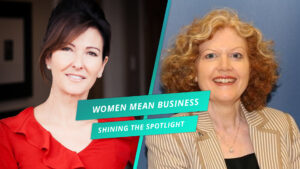Following our ‘Women in Recruitment’ roundtable events we wanted to shine a spotlight on women in business, so we have conducted a series of interviews with successful women in our industry, to hear from them about the challenges they face and what inspires them.Following our last ‘Women in Recruitment’ roundtable event we wanted to shine a spotlight on women in business, so we have conducted a series of interviews with successful women in our industry, to hear from them about the challenges they face and what inspires them. The sixth interview in the series is with Michelle Reilly from 6CATS International.
Michelle has 20 years’ experience in international tax compliance for contract placements.
She started as the receptionist of the Albany Group in 1998 and quickly developed a passion for supporting the international contract industry and found it very easy to understand international tax compliance and solution development. Michelle spent 8 years working for The Albany Group and progressed to sales and compliance manager.
Following this she spent 3 years working for Lemcon Networks (Singapore and London, mobile networks construction company) as Global Compliance Manager.
Michelle moved to CXC Global next where she set up the EMEA division, as the Sales Director/MD of Europe, and took over the UK business becoming MD of CXC EMEA in 2012.
In 2016 she led an MBO, purchasing the CXC Global EMEA agency business and forming 6CATS International. Deciding to focus exclusively on supporting the international contract recruitment industry and the contractors it places, which led to 6CATS International winning the RI award for Best Supplier Company for Customer Service in 2018.
This year will also see the launch of a compliance support and management service to help agencies manage their compliance process.
Now we have some background information on Michelle, let’s dive into the interview to find out more:
Q: What inspires or drives you as a leader?
A: What inspires me most, now I am CEO of my own company, is being able to create opportunities for others and to build a successful team of people who can work together to create a brilliant environment and deliver the service that I envisaged prior to being CEO.
One of the main drivers for all of us at 6CATS is that we change attitudes towards international tax compliance for recruiters placing contractors internationally.
We see so many recruitment businesses exposed to risk by companies providing non-compliant and now, since the introduction of the Criminal Finances Act, illegal solutions, that we really want to educate and work with recruitment firms to protect their businesses.
We are passionate about the recruitment industry, which is the reason we decided that 6CATS would provide services exclusively to the sector. Knowing exactly why you are going to work every day and what purpose your business is there for is a real driver. And being aware that all of your team know this too, makes it even more exciting.
I am very lucky to work in an industry that I love, with great people who constantly give inspiration and support.
Q: Do you have a female role model, if so, who and why?
A: I’ve never really focused on or thought about having a role model as I think it’s really important to be yourself.
Throughout my life and career, however, I have been around strong women, who have proved to me that anything is possible with hard work and determination. I’ve taken inspiration from that.
Whether that’s when I was about 5 and my Mum decided she was going to pave our front garden on her own or my sister’s best friend leaving school at 16 and going on to win Traders Magazine Top CEO, Women on Wall Street.
I think it is important to recognise the traits in people that make them seem brilliant to you and think about how you can put that into your own life in your own way.
Q: What would you attribute your success to?
A: I’ve always loved working hard regardless of the job I am doing. I also love to learn, and I am interested in how everything works.
In every job I’ve wanted to learn more than just my role, always putting myself forward to learn more and never being afraid to push myself, develop new skills and step outside of my comfort zone.
I’ve always worked in service roles and I have constantly thought about what I can do to improve our offering, how could things work better, what would give an enhanced service? I’ve never been afraid to come forward with ideas of how I think we could improve a business and will work hard to prove I can add value and make something better.
On the flip side, I will also speak up if I think something is not working and may be harmful for an organisation. Sometimes it might have meant being unpopular, but if it was in the interest of the company’s success, I was never really bothered, and this created opportunities for me.
Q: How did you get to where you are today and who helped you along the way?
A: I’ve worked with some great people who have given me huge opportunities.
My Mum and Dad were a great support. When I decided I wanted to leave college just before my A levels, everyone thought I was crazy as I was predicted to get great grades and go on to university, but it just wasn’t for me. My parents didn’t put any pressure on me and just trusted that I was doing what was right for me.
Then when I started working at the Albany Group, the CEO was very patient and encouraging. The business was growing, and I could see there were opportunities, so I put myself forward to help with the areas that needed a service-orientated person. I constantly asked questions and pushed to learn as much as possible about tax compliance and how to structure solutions. I clearly remember sitting in the office with Martin Glick and him drawing me diagrams of how everything worked in the company and showing me tax books that I could read and learn from.
After leaving Albany and moving to Singapore with Lemcon, I met the chairman of CXC, Dave Thomas and we instantly hit it off. He asked me to go and work for him shortly after our first meeting but that didn’t happen for another two years, after I was made redundant from my role at Lemcon. At that time, I was uncertain what I wanted to do and after talking to Dave about this he suggested I set up a European division for CXC. It was a huge step and I was a bit unsure, but he absolutely believed in me and supported me every step of the way.
In 2011 I met Graham Palfery-Smith, who has since become my husband. By then, the European business was growing quickly. There was an opportunity and with Dave being based in Australia, it was the right time for me to have a mentor. Someone who could help me grow into a true MD.
It was great timing as a year later I had the opportunity to buy CXC’s UK business and bring it into the European division. This meant I had to completely restructure and rebuild the UK business, while keeping the European operation running and growing.
Having a mentor who kept me focused and acted as a sounding board when I was frustrated or could not talk to anyone else in the business about the changes I needed to make, was invaluable.
Graham also offered amazing support when I decided I wanted to lead the MBO and form 6CATS, as were my management team and the other directors of 6CATS.
I have been so lucky that these people came into my life and that they saw the qualities in me and gave me opportunities.
Q: After all your success, what challenges do you continue to face?
A: I still want 6CATS to get better and better, and I’m always looking for ways we can improve – that’s my constant challenge.
As a company, we are always tested by legislation, but I find that exciting. Understanding new legislation and working with it to ensure our tax solutions remain compliant and enable recruitment businesses to continue placing contractors, is an issue I am passionate about.
The challenge of still working against companies that will enable contractors to work non-compliantly – facilitating tax evasion and exposing recruitment businesses to huge risk – is frustrating as it sometimes feels like it is invisible to the senior people in the recruitment business, but we at 6CATS are working on changing this!
Q: Have you ever struggled to achieve work life balance, or achieved it?
A: When you love what you do it’s hard to find a work life balance as some days I feel like I could keep working and not go home. I know that’s not possible and I’m lucky that my team and my family encourage me to be realistic about what is achievable.
Saying that, I really love to travel and take regular holidays, but when you are the main person in the company, you never really switch off. I sometimes promise that I am going to take a complete break but after a day or two, I’m desperate to do a little bit of work. It’s really about what works for you.
Sometimes I do miss out on family stuff, but I’m starting to realise that’s my choice and only I can do something about it, the world won’t stop without me. It’s just learning to be comfortable with that.
Q: What is one leadership lesson that you have learned in your career?
A: Listen. Listen to people you want to learn from. Listen to your team. Listen to your customers. Take the time to hear what people are really saying.
The chairman of CXC once told me a saying I never forgot, “You have two ears and one mouth; always use them in that ratio”.
Q: What have you learned about leadership and entrepreneurial-ship?
A: Change is good and always look for ways to be better or do something better. To keep people engaged whether it’s staff or customers, you have to think that little bit more and work hard to be innovative and assess what people want.
Q: Do you or have you ever mentored others, is there value in this in your opinion?
A: I’m very hands on with my team and work closely with everyone so that they know how important they are to the company. I have 1-2-1’s with my directors every week and some of this time is used for mentoring.
I’ve also mentored more junior members of the team that have worked their way through the company and now hold senior positions. I think having a mentor is extremely valuable, I have a one myself and it’s great to be able to talk things through without worrying about being judged.
I also think critical feedback can be great for helping people to develop so long as it is delivered in the right way and the person is ready to develop themselves.
Q: What is the best and worst decision you have ever made?
A: The best decision I have ever made was biting the bullet and deciding to lead the MBO and establish 6CATS.
I don’t have a worst decision: anything that at the time I might have thought was a bad decision, I have learned from, so something good has come out of it.
Q: Do you think there are barriers for women looking to climb the ladder?
A: I haven’t really faced that, and I have always worked in a predominantly male industry, or perhaps I’ve chosen to ignore it and get on anyway.
When I was much younger and first came into the industry, I was probably judged a bit by the men that I worked with.
I was working for a company that had transformed from an accountancy firm and was a little bit ‘stuffy’. I came in from managing the front house of one of London’s top health clubs and so it was a bit like mixing oil with water.
I’ve got a fairly thick skin so when there may have been a few digs about being a young bimbo from Essex I might have found it a bit harder to be taken seriously, however, it made me more determined to prove everyone wrong. I went from receptionist to sales and compliance manager in that company, so I think I broke down the barriers.
I have worked with 100’s of male recruiters and have never had an issue; some of my best clients today are recruiters that I met when I first came into the industry. I have gone on to run my own business, as have many of them and they show nothing but complete support.
Q: What advice would you give to women who are looking to become leaders in a business?
A: Decide on what you want and go for it.
If you face challenges, try everything you can to turn the situation around. If you work hard and try to be brilliant, people will recognise that, regardless of your gender.
If you are not getting the opportunities you think you deserve, ask why, listen to the answers and make sure you act on it. If things are still not working, ask again and challenge why you’re not getting where you want to when you are delivering what is being asked for.
Q: Are there any strategies that can help a woman achieve a more prominent role in a male dominated organisation?
A: Stick to the job, keep it professional and stay focused on what you need to do to be an over-achiever.
Q: What do you think will be the biggest challenge for the next generation of women looking to move up the hierarchical ladder?
A: I really don’t feel there are challenges that will stop women from moving up the hierarchical ladder if they want to get there. Obviously, personal life choices may have an impact, but that is up to the individual.
Q: In your experience what do you think a business can do to encourage diversity?
A: It’s down to the people in control of the business to feed down to those who are responsible for hiring that they need to be looking for brilliant people that have the right skills to do the job, rather than focusing on a stereotype of the type of person that they think can do the job.
Stay open minded and go for skilled, exciting people that can bring different and new ideas to the company.
Q: In your experience, what can a business do to attract and retain female talent?
A: I don’t think a business should go out of its way to attract female talent. It should go out of its way to be the best and attract great talent. With that comes a whole variety of talent. If you create a great company people want to work for, it will attract good professionals, whether they are male or female.
Q: What advice would you give to leaders to encourage diversity and a more equal split of male and females in more senior positions?
A: The majority of companies in the international contractor management sector are owned by men, who employ a fairly high percentage of men.
When I set up our company I never thought too much about whether I was hiring males or females: I wanted the best people available to do the job. That was all I focused on.
I have built a company with a board that is 50% men and 50% women. Our team in London is slightly over 50% women and our team in India is about 50/50. None of this was done consciously and I don’t put up barriers for people.
I have always believed in my staff regardless of gender: if they have wanted to achieve and move up, I have tried to help and make that possible.
With all staff you also have to be willing to accommodate, having flexible hours for members of the team who may have to think about childcare, school runs or other personal commitments. That’s really important for all staff.
The world is changing and a worker does not necessarily have to be at their desk from 08:30-18:00 to be doing a great job. My FD proves this all the time. She comes to the office 2 days a week and works flexi hours the other days. We have just sailed through our audit and our finance process and management is improving all the time.
It’s time for companies to start thinking outside of the box to attract the best senior talent.
Q: Is there anything else you would like to add?
A: For the last 20 years, I have worked in companies that support the recruitment sector. One thing I have witnessed is the industry’s ability to respond and adapt to accommodate change and develop. I would imagine there are still lots of industries that are not doing anything to raise awareness of gender equality – the recruitment industry should be proud of this willingness to change.
When I came into the sector 20 years ago, technical recruitment companies were predominantly staffed by men, however, in recent years there has certainly been a shift. We are also seeing this with contractor placements in the technical sector.
Seven years ago, only 1% of the contractors we engaged were female; this has now increased to 12% and is growing.
Share :



